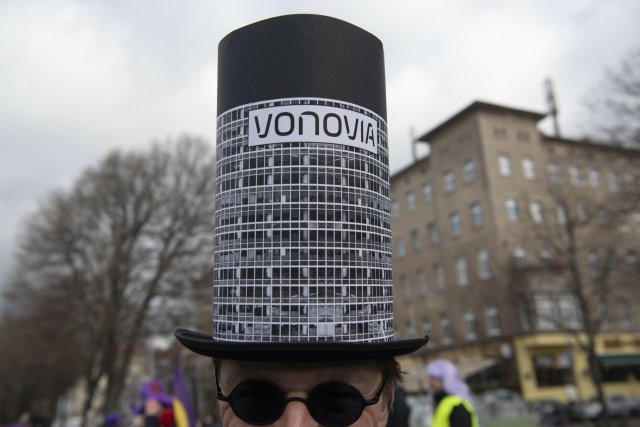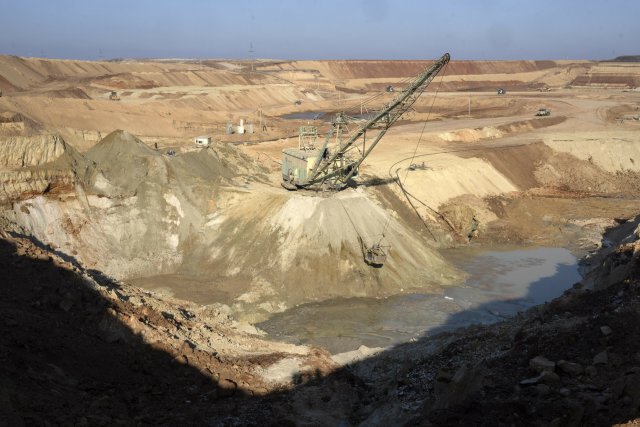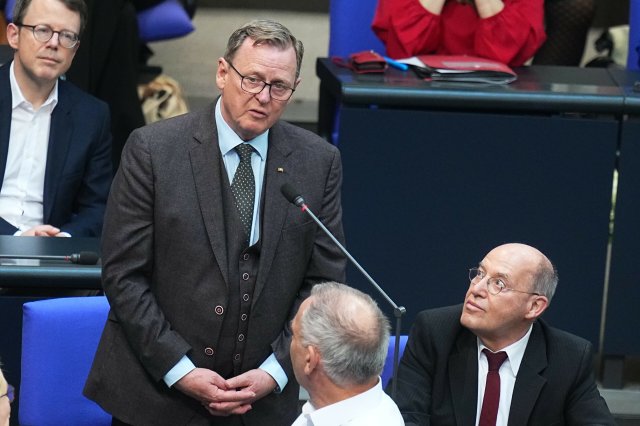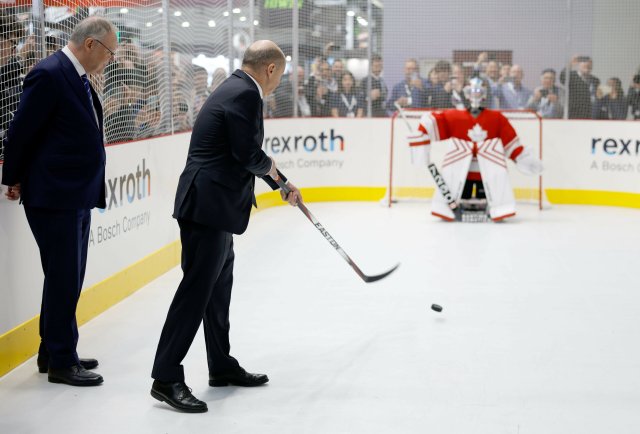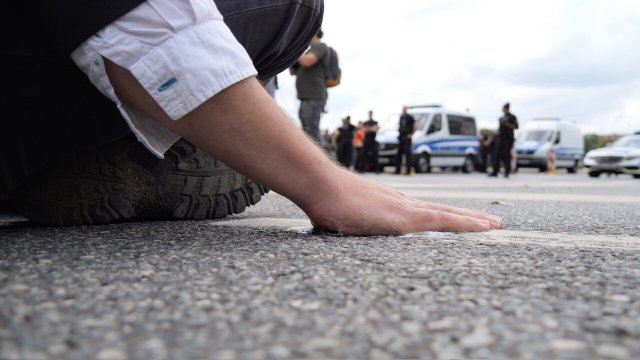- Kommentare
- BVG
U8 »cleaning patrol« will only make Berlin's subway worse
The BVG is trying to clean up the U8, the subway connecting Berlin's poorest neighborhoods. But more police will only make things worse
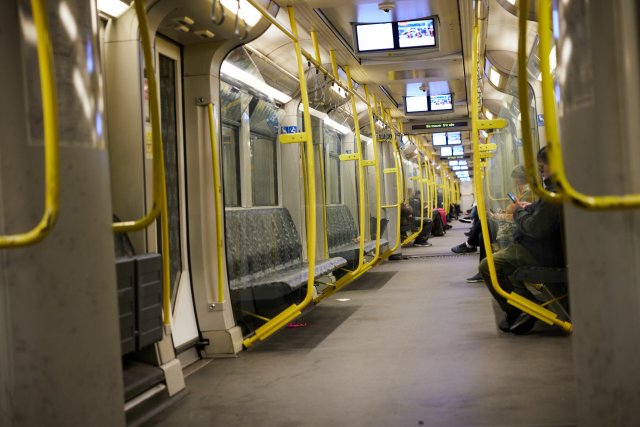
The U8, the dark blue subway line that connects Berlin's poorest neighborhoods, is known as the »scary« one. Moving from Wedding through Kreuzberg to Neukölln, it can feel like all the city's problems are concentrated in a handful of stations: drugs are used and sold in the open, leading to mental health crises and occasional fights. It's dirty, but it's actually not particularly dangerous. As a worker at a flower shop inside Kottbusser Tor station told »nd«: »The junkies don't do anything.«
Since February, the public transport company BVG has been running a »cleaning patrol« on the U8. This involves not just cleaners, but also police and private security to eject people from the stations if they are unhoused or suffering from addiction. The first phase going over three month cost 700.000 euros.

Red Flag is a column on Berlin politics by Nathaniel Flakin. It appeared in Exberliner magazine from 2020 to 2023 and found a new home at the Berlin newspaper nd – as their first content in English. If you like a regular dose of very local communist content, please share. Nathaniel is also the author of the anticapitalist guide book Revolutionary Berlin.
Diese Kolumne auf Deutsch lesen.
An activist group called »Ihr seid keine Sicherheit« (You are not security, ISKS) has done their own survey about the BVG's campaign. Only 11 percent of respondents said that additional security guards made them feel safer – while 49 percent felt intimidated. I can confirm this: over the years I have seen a lot of misery on Berlin public transport, but the only time I have ever seen violent assaults were by BVG subcontractors, which I've written about again and again and again.
The problems on the U8 aren't caused by poor people – wealthy, powerful men in suits are to blame. The BVG used to have a Bahnhofsaufsicht, a station manager, to keep order at just about every stop – you can still see the little booths where they used to work. Brutal cuts in public transport funding in the early 2000s led to a chronic shortage of BVG personnel. And Berliners got dirtier stations and a semi-regular collapse of urban trains.
We are told the BVG's permanent crisis is due to a lack of money. But the BVG paid its top three managers a total of 1.043.000 euros last year – while they have trouble attracting new drivers due to low salaries. (If you want to know why the BVG never seems to work, »nd« has Berlin's best critical reporting.)
The results of numerous neoliberal policies are visible in the subways. Homelessness is also a product of the city's exploding rents – which were caused by the privatization of public housing stock two decades ago, as well as the refusal to build new affordable housing today. Kicking someone out of a subway station doesn't really solve anyone's problem – they have to live somewhere. An easy solution would be to invest in new housing. Even easier would be to reverse the privatizations with the extremely popular idea of expropriation.
But no. Berlin's government seems to only spend money on more police. These measures are made for car drivers in the suburbs, who would never take the U8 anyway, but are happy to hear Kai Wegner tell them that poor people are getting chased away in the name of »law and order.«
Berlin's government is currently spending about 720 million euros to extend an inner city highway a few kilometers. And they want to spend at least one billion euros for the next segment. That money would pay for a lot of subway cars and a lot of apartments. But I wouldn't hold my breath.
Das »nd« bleibt. Dank Ihnen.
Die nd.Genossenschaft gehört unseren Leser*innen und Autor*innen. Mit der Genossenschaft garantieren wir die Unabhängigkeit unserer Redaktion und versuchen, allen unsere Texte zugänglich zu machen – auch wenn sie kein Geld haben, unsere Arbeit mitzufinanzieren.
Wir haben aus Überzeugung keine harte Paywall auf der Website. Das heißt aber auch, dass wir alle, die einen Beitrag leisten können, immer wieder darum bitten müssen, unseren Journalismus von links mitzufinanzieren. Das kostet Nerven, und zwar nicht nur unseren Leser*innen, auch unseren Autor*innen wird das ab und zu zu viel.
Dennoch: Nur zusammen können wir linke Standpunkte verteidigen!
Mit Ihrer Unterstützung können wir weiterhin:
→ Unabhängige und kritische Berichterstattung bieten.
→ Themen abdecken, die anderswo übersehen werden.
→ Eine Plattform für vielfältige und marginalisierte Stimmen schaffen.
→ Gegen Falschinformationen und Hassrede anschreiben.
→ Gesellschaftliche Debatten von links begleiten und vertiefen.
Seien Sie ein Teil der solidarischen Finanzierung und unterstützen Sie das »nd« mit einem Beitrag Ihrer Wahl. Gemeinsam können wir eine Medienlandschaft schaffen, die unabhängig, kritisch und zugänglich für alle ist.
